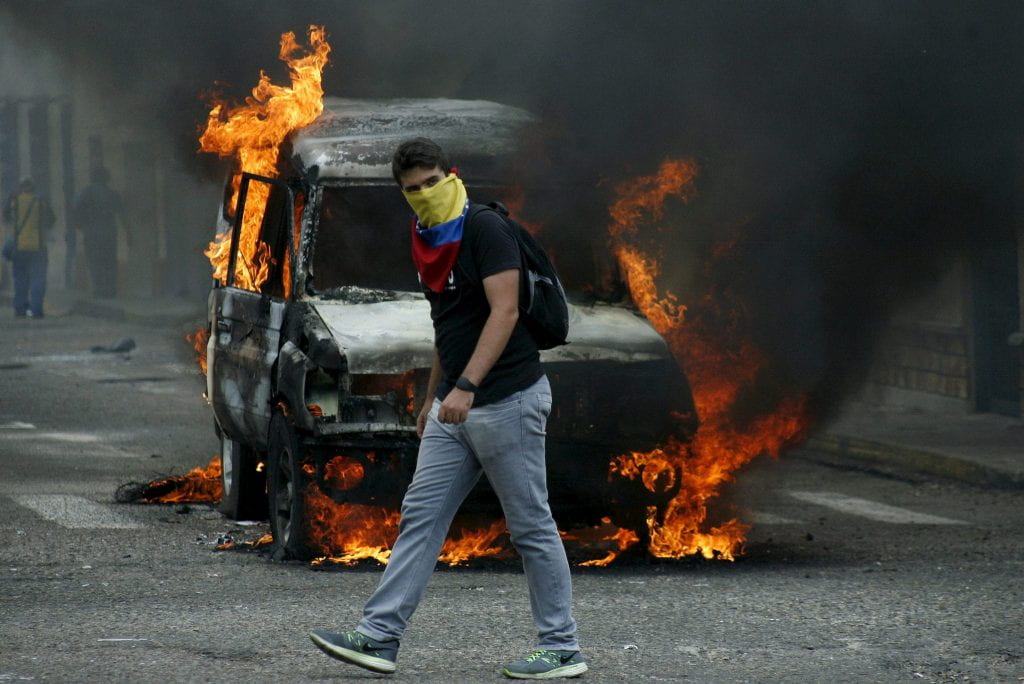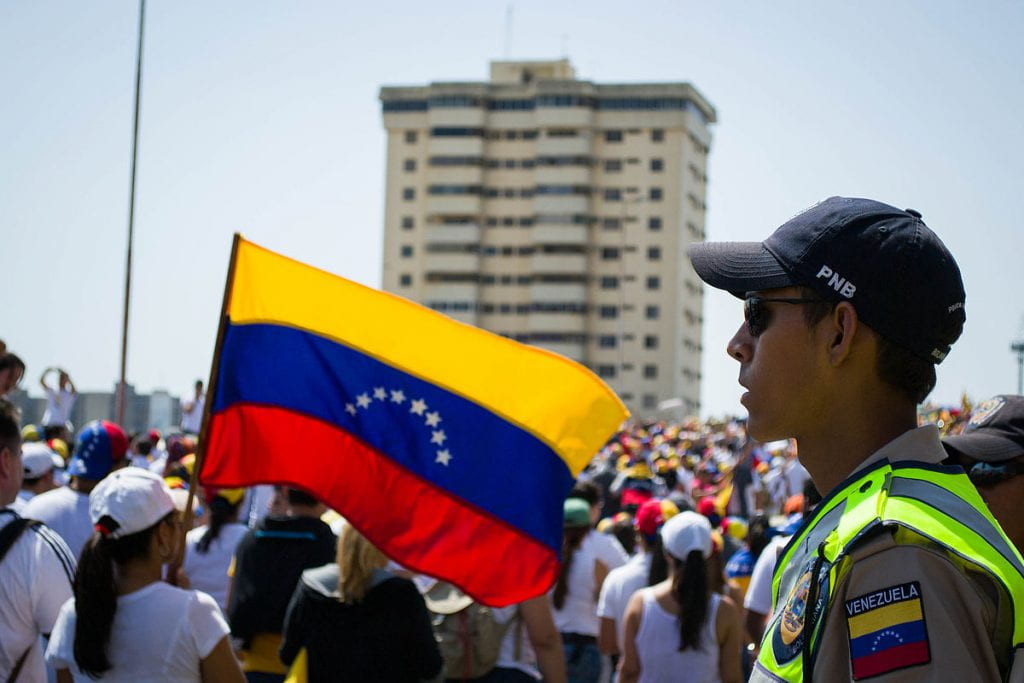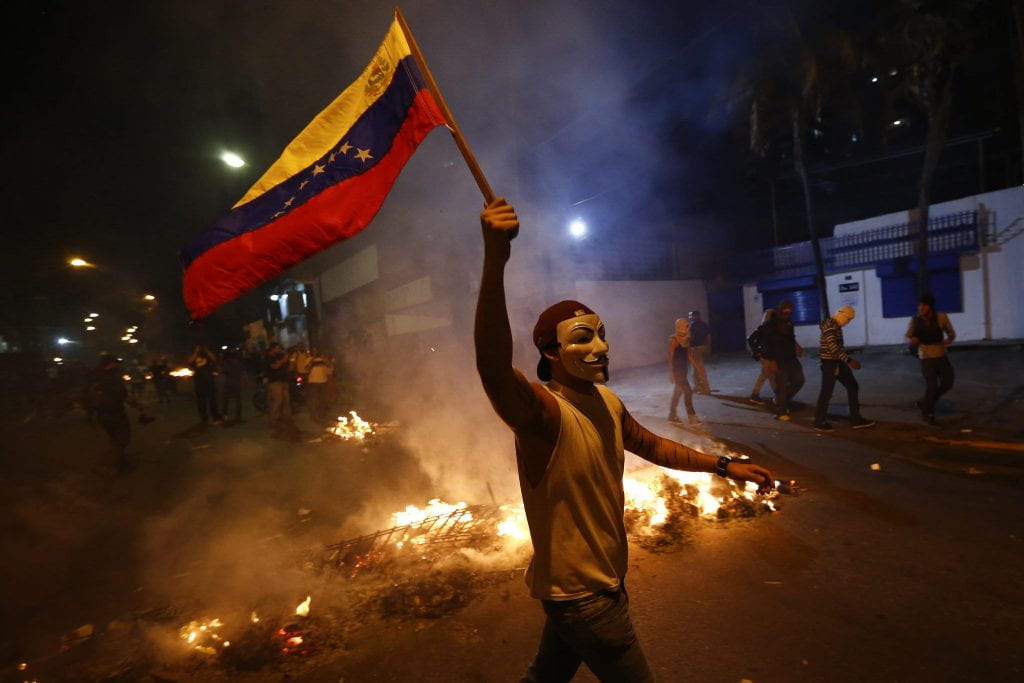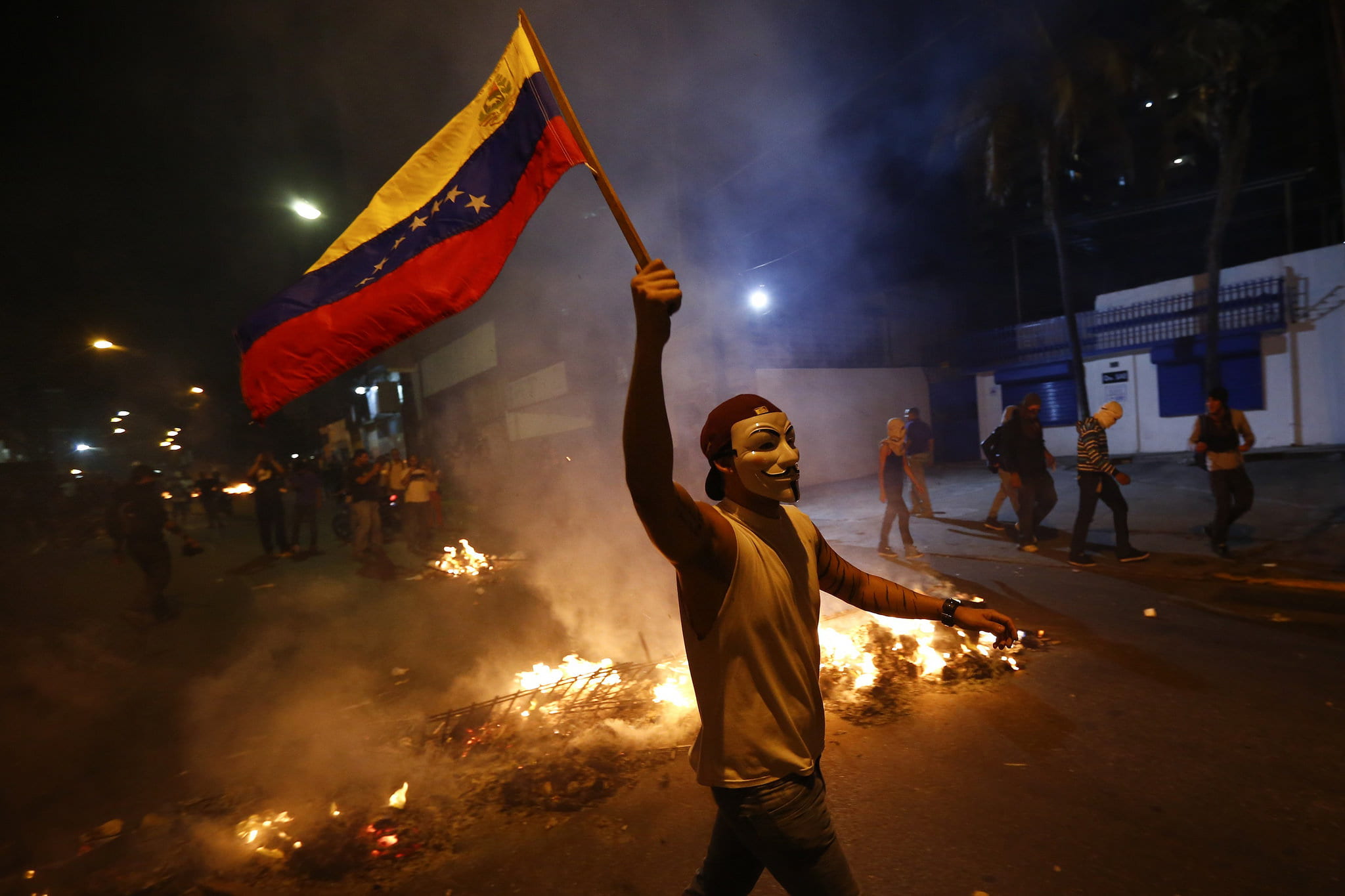
Venezuela is not free. The Freedom in the World 2017 Profile rates their overall freedom status as Not Free with an aggregate score of 30/100. The most recent anti-government protests have persisted for eight weeks with a rising death toll of at least 60 as of Monday 29 May, as the far too often and routine clashes between protesters and police continue. Violence has heightened in recent days as the opposition marches for its four key demands:
- removal of the Supreme Court justices who issued the ruling on March 29th;
- general elections in 2017 (rather than 2018);
- creation of a “humanitarian channel” to allow the import of medication to counter severe shortages; and
- release of all the “political prisoners”
Both the government and opposition accuse each other of sending armed groups to sow violence during demonstrations. President Maduro has even gone as far as to accuse the opposition of terrorism. Food and medicine shortages plague the citizens of Venezuela as they struggle to fight for their own freedom and basic human rights. Many sources say the country is on the brink of collapse.
Consistent political tension has existed in the country since the death of former leader of the United Socialist Party (PSUV) Hugo Chaves in 2013, when President Nicolas Maduro came to power. The election left the country split into Chavistas (followers of the socialist policies of the late President Chaves) and those who wish to see an end to the PSUV’s 18 years in power. Opposition members claim the PSUV has eroded Venezuela’s democratic institutions and mismanaged its economy. In turn, Chavistas point the finger at the opposition for being elitists, who exploit poor Venezuelans for personal financial gain. Additionally, Chavistas allege that opposition leaders are in the pay of the United States, with whom Venezuela has had strained relations in recent years.
In early 2014, Venezuelan government began to respond to anti-government protests with brutal force. Security forces used excessive force against unarmed protesters and bystanders. These forces tolerated and even, at times, collaborated directly with armed pro-government gangs that violently assaulted protesters. Those detained and held incommunicado on military bases for at least 48 hours before appearing before a judge. In some cases, detainees were subject to severe beating, electric shocks or burns, and forced to squat or kneel for hours.
Maduro, in July 2015, deployed over 80,000 members of security forces in “Operation People’s Liberation” (OLP) to confront “rising security concerns”. Following raids in low-income and immigrant communities by both police and military forces resulted in public accusations of abuse, including extrajudicial killings, mass arbitrary detentions, maltreatment of detainees, forced evictions, the destruction of homes, and arbitrary deportations. The following February, Attorney General Luisa Ortega Diaz announced that 245 people had been killed in OLP raids during 2015 in “incidents in which ‘members of various security forces participated’”. Government cited that “those killed died during ‘confrontations’ with armed criminals,” despite witness accounts in at least 20 cases that do not include any sort of confrontation.

Human Rights Watch World Report on Venezuela (HRW) reveals tensions have only increased as arbitrary prosecution of political opponents has become more frequent and forceful. Leopoldo Lopez, an opposition leader, is serving a 13-year sentence in military prison for his alleged role in inciting violence during a demonstration in Caracas in February 2014, despite the lack of any credible evidence linking him to a crime. Several others arrested arbitrarily in connection to anti-government protests in 2014, remain detained or under house arrest while awaiting trial. The Bolivarian National Intelligence Service (SEBIN) detained dozens of individuals in 2016, citing they were planning, fomenting, or participating in violent anti-government actions, although many were, in fact, peaceful protests. Many detainees claim they were tortured or abused in custody. Detainees also report they were unable to speak with their families or attorneys for hours and/or days after their detaining. In many cases, much like Lopez’s, prosecutors failed to produces any plausible evidence associating charged persons with the crimes of which they were accused. Courts consider the possession of political materials, including pamphlets calling for the release of political prisoners, credible evidence in some cases.
HRW suggests Venezuela’s national distress heightened as “severe shortages of medicines and medical supplies make it extremely difficult for Venezuelans to obtain essential medical care”. In August 2016, a network of medical residents from public hospitals countrywide reported severe shortages of medicines in 76% of surveyed hospitals as compared to 67% the year before. Researchers found that infant and maternal mortality rates in 2016 were significantly higher than in previous years. Severe food shortages have made it extraordinarily problematic for many people to obtain adequate nutrition. Civil society groups and two Venezuelan universities conducted a survey in 2015 in which “87 percent of interviewees nationwide—most from low-income households—said they had difficulty purchasing food” and “[t]welve percent were eating two or fewer meals a day”.
The UN Human Rights Council scrutinized Venezuela’s human rights record in November 2016. Numerous states “urged Venezuela to cooperate with UN special procedures by addressing arbitrary detention, lack of judicial independence, and shortages of medicine and food; releasing persons detained for political reasons; respecting freedom of expression, association, and peaceful assembly; and ensuring that human rights defenders can conduct their work without reprisals”. Unfortunately, Venezuela has actively voted against the scrutiny of human rights violations as a member of the UN Human Rights Council, and has opposed resolutions associated with human rights abuses in North Korea, Syria, Belarus, and Iran.

The Venezuelan government has downplayed the severity of the country’s current state of crisis. Efforts to alleviate shortages have not been successful and have limited efforts to obtain available international humanitarian assistance. Measures taken by the Venezuelan government to restrict international funding of non-governmental organizations, along with unsubstantiated accusations by government officials and supporters that human rights defenders are seeking to undermine Venezuelan democracy, creates a hostile environment that restricts civil society groups from effectively promoting human rights. In early 2016, Maduro issued “a presidential decree that—in addition to declaring a ‘state of exception’ and granting himself the power to suspend rights—instructed the Foreign Affairs Ministry to suspend all agreements providing foreign funding to individuals or organizations when ‘it is presumed’ that such agreements ‘are used for political purposes or to destabilize the Republic’” (Venezuela, 2017). Maduro received two extensions to the state of exception – in September and in November.
A surprise announcement by the Venezuelan Supreme Court on March 29, 2017 was a key catalyst in sparking the current anti-government protest. The announcement disclosed that the Court would take over the powers of the opposition-controlled National Assembly–a ruling the opposition claimed would undermine the country’s separation of powers and push Venezuela one-step closer to a one-man, dictatorial rule under Maduro. The Court argued that the National Assembly had disregarded previous Court rulings and was therefore in contempt. Three days later, the Court reversed its ruling. This reversal, unfortunately, did not bring any relief to the overwhelming distrust of the Court by opposition members.
In early May 2017, discussion of creating a new constitution began as Maduro sought to make a move following the earlier days of the prolonged protest. The president has taken steps, including signing a document establishing the terms for electing the member of a “constituent assembly”, tasked with the drafting of a new constitution.
Citizens of Venezuela persist in their efforts to demand access to basic human rights and civil liberties. Doctors rallied in the ongoing protest to address their own frustration with the current crisis. Over a thousand health care workers and opposition sympathizers marched towards the health ministry in Caracas. Police fired tear gas to drive them back, in scenes all too familiar after weeks of unrest. One protester, a 50-year old surgeon, says, “One is always afraid to come out, but we will carry on doing it until there is a change”. Despite a belief that the opposition party is plotting a coup against him, President Maduro has called for a “march for peace”. Venezuelans and the world await his plans to bring peace to fruition.
Works Cited
Freedom in the World 2017: Venezuela Profile. (2017). Retrieved May 2017, from Freedom House:https://freedomhouse.org/report/freedom-world/2017/venezuela (2017). Venezuela. New York, NY: Human Rights Watch.
Venezuela Crisis: What is Behind the Turmoil. (2017, May 4). Retrieved from BBC News: http://www.bbc.com/news/world-latin-america-36319877
Venezuela Leader Launches Constitution Overhaul. (2017, May 23). Retrieved May 2017, from TRT World: http://www.trtworld.com/americas/venezuela-leader-launches-constitution-overhaul-363182
Venezuela Protests Continue with Rally bt Health Care Workers. (2017, May 22). Retrieved from TRT World: http://www.trtworld.com/americas/venezuela-protests-continue-with-rally-by-health-care-workers-362416
Venezuela Protests Continue with Rally by HealthCare Workers. (2017, May 22). Retrieved May 2017,from TRT World: http://www.trtworld.com/americas/venezuela-protests-continue-with-rally-by-health-care-workers-362416

